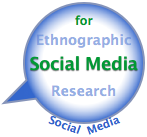 Ethnographic research for social media initiatives shows how ethnography can change the rules of social media programs in marketing, customer service, product development, recruiting and others. Ethnographic research enables teams to understand the people who are most important to your firm so they can relate to them at a completely different level. Moreover, interacting in digital public activates the network effect and the annuity effect, so it’s very scalable. Since your teams interact in digital public, where a far larger group of like people observes the interactions, they influence a large group of people and build relationships with them. People start trusting your firm, preferring your firm, and doing more business with you. See the Trust Business Chain Reaction and infographic for how it monetizes. Ethnographic research for social media initiatives shows how ethnography can change the rules of social media programs in marketing, customer service, product development, recruiting and others. Ethnographic research enables teams to understand the people who are most important to your firm so they can relate to them at a completely different level. Moreover, interacting in digital public activates the network effect and the annuity effect, so it’s very scalable. Since your teams interact in digital public, where a far larger group of like people observes the interactions, they influence a large group of people and build relationships with them. People start trusting your firm, preferring your firm, and doing more business with you. See the Trust Business Chain Reaction and infographic for how it monetizes.
Ethnographic research for social media initiatives is a game-changer for customer experience and digital transformation programs in multiple phases. It’s faster, less costly, and scalable. It provides an unprecedented combination of qualitative and quantitative research.
[…]
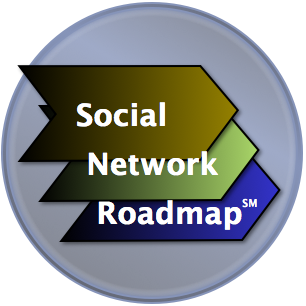 The Social Network Roadmap(SM) is a full life cycle methodology that accelerates and de-risks social business, social media marketing, and digital transformation. Designed by Christopher S. Rollyson and launched in 2008, the Social Network Roadmap (SNR) has been used by businesses, governments and nonprofits to fix situations like these: The Social Network Roadmap(SM) is a full life cycle methodology that accelerates and de-risks social business, social media marketing, and digital transformation. Designed by Christopher S. Rollyson and launched in 2008, the Social Network Roadmap (SNR) has been used by businesses, governments and nonprofits to fix situations like these:
Costly social media initiatives that don’t measurably impact profit or mission. “Me too” social media that focuses on not looking bad instead of making money. Factions that vie to “own social” by launching competing initiatives. Fluffy “results” that lead executives to think “there’s no there there” in social. Punitive social policies that prevent employees from interacting and adding value.
SNR is a modular agile framework that uses best-in-class fast-cycle methods to help organizations succeed with ambitious social business projects. You can use this page to significantly improve your social business results. It can help you explore how you can best adopt social business, which applies peer-to-peer (“social”) technologies to business processes. The SNR is useful for assessing, testing, scaling and […]
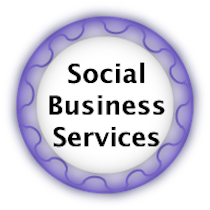 Social Business Services transform sales, marketing, customer service, and human resources aggressively and securely, using CSRA’s social business methodology. We change the rules of business operations by using digital social work processes for collaboration and business process innovation. Social Business Services transform sales, marketing, customer service, and human resources aggressively and securely, using CSRA’s social business methodology. We change the rules of business operations by using digital social work processes for collaboration and business process innovation.
According to McKinsey, internal collaboration and business process innovation account for most of social technologies’ economic value—far ahead of marketing and promotion—but firms need to learn how to use “social” before they can unlock the value.
As explained in detail in the Social Channel, digital social networks have changed the cost of relationship and collaboration, so corporate functions that dominate organization charts need to evolve to take advantage of it. If they do not, their ability to add value to the enterprise will steadily fall, and corporate effectiveness and efficiency will drop. For example, sales and marketing are two enterprise functions that are steadily converging in many enterprises due to the pervasive adoption of digital social technologies and behaviors. Enterprises have a rare opportunity to innovate.
B2B Sales and Business Development 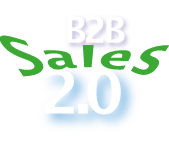
 The Experiential Social Media Seminar Widget assists you to explore a seminar or workshop to guide your team in experiential social media, social business, digital marketing or digital transformation. Use the widget to tell me about your team’s situation and goals. The widget will help us set up an exploratory call where we’ll discuss how to give your team the confidence it needs to perform at the next level. That’s all there is to it! The Experiential Social Media Seminar Widget assists you to explore a seminar or workshop to guide your team in experiential social media, social business, digital marketing or digital transformation. Use the widget to tell me about your team’s situation and goals. The widget will help us set up an exploratory call where we’ll discuss how to give your team the confidence it needs to perform at the next level. That’s all there is to it!
Seminars are usually half a day or less and address strategic topics while workshops last 1-2 days and entail extensive interaction and team exercises. Bootcamps are long workshops and are usually held offsite. I also deliver them at pre-conference or post-conference workshops and corporate retreats.
[…]
10 Detailed Case Studies + Big Data & Analytics’ New Digital Divide + How to Think Like a Data Scientist Book Review: Numbers Rule Your World/Kaiser Fung
 [UPDATED] Step inside a data scientist’s mind, and learn why probability is the key to profit and how it’s the key to understanding and using big data for better decision making. This fascinating and useful book clearly shows how people misunderstand probability and misuse statistics—and therefore big data—and how the knowledge gap leads to faulty models, thinking and decisions. New winners and losers are emerging in the digital social and big-data age. A new digital divide, people who think like data scientists and use probability to support decision making—and everyone else. The data science group will outperform, and Fung shows how creative, fun and useful data science is. [UPDATED] Step inside a data scientist’s mind, and learn why probability is the key to profit and how it’s the key to understanding and using big data for better decision making. This fascinating and useful book clearly shows how people misunderstand probability and misuse statistics—and therefore big data—and how the knowledge gap leads to faulty models, thinking and decisions. New winners and losers are emerging in the digital social and big-data age. A new digital divide, people who think like data scientists and use probability to support decision making—and everyone else. The data science group will outperform, and Fung shows how creative, fun and useful data science is.
This book is a perfect twin to Duncan Watts’ Everything Is Obvious* Once You Know the Answer, which exposes how common sense pervades management decisions and failure. I shall refer to several specific connections between […]
![Herd the Cats [Social Business Team Building] Case4](http://rollyson.net/wp-content/uploads/2013/04/sbtb4.png) [UPDATED] Herd the Cats is usually initiated by the CMO/CDO (Chief Digital Officer) or other enterprise practice or brand executive who discovers that various business units or brands in the organization have diverse social media presences without much apparent direction or business results. S/He wants to use strategy to provide a keel that resonates with corporate strategy, addressing issues as diverse as corporate citizenship, community, health or policy. [UPDATED] Herd the Cats is usually initiated by the CMO/CDO (Chief Digital Officer) or other enterprise practice or brand executive who discovers that various business units or brands in the organization have diverse social media presences without much apparent direction or business results. S/He wants to use strategy to provide a keel that resonates with corporate strategy, addressing issues as diverse as corporate citizenship, community, health or policy.
In 2013, digital marketing and firm executives are thinking about building their internal teams to provide more continuity and scale, so the champion often wants to create a social business “center of excellence” to serve several businesses or brands, leveraging enterprise resources to improve social business performance and contributions.
Herd the cats is the fourth of the five-part social business team building series The series describes team building in the context of various scenarios in which firms build social business capability, step by step, while investing wisely. Social Business Strategy Use Cases outlines and compares all five use cases while Social Business Team Building gives general guidance for […]
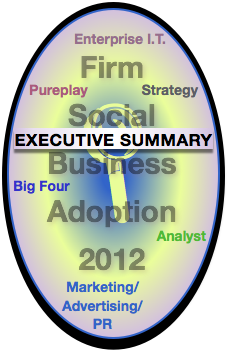 Advisory & Services Firm Social Business Adoption 2012 is a research survey that looks at social business advisory/consulting firms in a new way. Using quantitative methods, I compared consultancies according to the needs of clients who want to transform their organizations with social business. The twelve metrics measure firms’ performance in business impact, sociality, and transformation areas, and they rank firms within firm categories and overall. Advisory & Services Firm Social Business Adoption 2012 is a research survey that looks at social business advisory/consulting firms in a new way. Using quantitative methods, I compared consultancies according to the needs of clients who want to transform their organizations with social business. The twelve metrics measure firms’ performance in business impact, sociality, and transformation areas, and they rank firms within firm categories and overall.
Now prospective clients can compare Strategy firms, Big Four firms, Agencies, Analysts, Enterprise IT firms, and Pureplays quantitatively. Moreover, consulting firms can use these metrics for guidance in building out their social business practices.
I launched CSRA in 2006, and we have always practiced social business as transformation. Client work in social business transformation enables me to see where the market is going, so this survey considers social business firms from that future state.
[UPDATE 8 Mar] Now available: “Executive Briefing” is even more summarized (14-slides) in two versions: Guidance for Clients and Guidance for Firms. Research survey results will be most useful if you […]
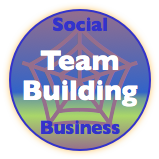 [UPDATED] Several times over the past few years, I have been contacted by major brands to advise them on finding a “social media executive” to help them “figure out social media” and “create a strategy.” In 2012, many firms began building social media teams in earnest, and this trend will continue to grow in the years ahead. Firms are also bringing “social media work” inside after having outsourced it to agencies. All of my client work has involved helping clients to build social business competency and teams, so here I’ll offer some pointers for how to build teams and avoid the pitfalls most companies experience. [UPDATED] Several times over the past few years, I have been contacted by major brands to advise them on finding a “social media executive” to help them “figure out social media” and “create a strategy.” In 2012, many firms began building social media teams in earnest, and this trend will continue to grow in the years ahead. Firms are also bringing “social media work” inside after having outsourced it to agencies. All of my client work has involved helping clients to build social business competency and teams, so here I’ll offer some pointers for how to build teams and avoid the pitfalls most companies experience.
Although each organization’s culture is different, the CEO, CDO, CMO or CAO will be happier with the social business investment if s/he doesn’t invest far ahead of return on investment, which remains low at firms that insist on “business-meaningful” metrics, not the PR- or “brand-building” variety. It’s a chicken-and-egg challenge: how do you know what kind of team to build until you’re achieving real business-meaningful returns on your social business initiatives?
[…]
Government Case Study: Social Business Strategy for Local Government Business Challenge
Local government had a conservative culture, and the Communications Department had been studying the community’s social media adoption for some time. Several departments wanted to create pages, but Communications wanted a defined strategy to put their best foot forward before launching presences. The mission was to explore the potential for social media to help improve communications and relationships with citizens, especially younger demographics.
Role
As engagement partner, worked with the Communications team to develop the social business strategy. Began with the Ecosystem Audit to understand the environment. Continued with the Organization Audit to understand the government’s relevance to its ecosystem, and completed the Social Business Strategy, which detailed for several pilots to test the strategy and develop the client’s social business skills.
Rollout
The Ecosystem Audit produced the Ecosystem Map and Ecosystem Report, which provided a clear blueprint of the community’s digital social activity.
Working with the client team, conducted persona study to define community- and business-relevant stakeholders, developed/iterated keyword families, and programmed filters. Defined stakeholder interests in workstream analysis, which enabled us to locate specific conversations relevant to quality-of-life issues such as child care, night life, health […]
Welcome to the Social Channel home page. It will orient you to the Social Channel and its core ideas. The Social Channel is a key force in the most profound shift in business and society since 1750, when the Agrarian Economy began declining in favor of the Industrial Economy. Most important, it shows you how to use digital social technologies to adjust your career and business to create much more autonomy and prosperity for your community, company and family.
Business Challenges
Why is The Social Channel an opportunity and challenge for people? Today, leaders worldwide lament the “bad economy” and lack of jobs, but they miss the point. We don’t have a bad economy, it’s a different economy with new kinds of jobs, products and services. This new “Knowledge Economy” has different rules from the 20th century Industrial Economy. All people and organizations need to do is learn the new rules, tools and ways of working, so they can minimize pain and hasten increased prosperity.
The Social Channel represents a business shift away from impersonal mass-produced products (and jobs) to personalized products and social impact (and jobs). In the Industrial Economy, people ran machines to make products, creating far […]
|
|
 Ethnographic research for social media initiatives shows how ethnography can change the rules of social media programs in marketing, customer service, product development, recruiting and others. Ethnographic research enables teams to understand the people who are most important to your firm so they can relate to them at a completely different level. Moreover, interacting in digital public activates the network effect and the annuity effect, so it’s very scalable. Since your teams interact in digital public, where a far larger group of like people observes the interactions, they influence a large group of people and build relationships with them. People start trusting your firm, preferring your firm, and doing more business with you. See the Trust Business Chain Reaction and infographic for how it monetizes.
Ethnographic research for social media initiatives shows how ethnography can change the rules of social media programs in marketing, customer service, product development, recruiting and others. Ethnographic research enables teams to understand the people who are most important to your firm so they can relate to them at a completely different level. Moreover, interacting in digital public activates the network effect and the annuity effect, so it’s very scalable. Since your teams interact in digital public, where a far larger group of like people observes the interactions, they influence a large group of people and build relationships with them. People start trusting your firm, preferring your firm, and doing more business with you. See the Trust Business Chain Reaction and infographic for how it monetizes.

 The Experiential Social Media Seminar Widget assists you to explore a seminar or workshop to guide your team in experiential social media, social business, digital marketing or digital transformation. Use the widget to tell me about your team’s situation and goals. The widget will help us set up an exploratory call where we’ll discuss how to give your team the confidence it needs to perform at the next level. That’s all there is to it!
The Experiential Social Media Seminar Widget assists you to explore a seminar or workshop to guide your team in experiential social media, social business, digital marketing or digital transformation. Use the widget to tell me about your team’s situation and goals. The widget will help us set up an exploratory call where we’ll discuss how to give your team the confidence it needs to perform at the next level. That’s all there is to it! [UPDATED] Step inside a data scientist’s mind, and learn why probability is the key to profit and how it’s the key to understanding and using big data for better decision making. This fascinating and useful book clearly shows how people misunderstand probability and misuse statistics—and therefore big data—and how the knowledge gap leads to faulty models, thinking and decisions. New winners and losers are emerging in the digital social and big-data age. A new digital divide, people who think like data scientists and use probability to support decision making—and everyone else. The data science group will outperform, and Fung shows how creative, fun and useful data science is.
[UPDATED] Step inside a data scientist’s mind, and learn why probability is the key to profit and how it’s the key to understanding and using big data for better decision making. This fascinating and useful book clearly shows how people misunderstand probability and misuse statistics—and therefore big data—and how the knowledge gap leads to faulty models, thinking and decisions. New winners and losers are emerging in the digital social and big-data age. A new digital divide, people who think like data scientists and use probability to support decision making—and everyone else. The data science group will outperform, and Fung shows how creative, fun and useful data science is.![Herd the Cats [Social Business Team Building] Case4](http://rollyson.net/wp-content/uploads/2013/04/sbtb4.png) [UPDATED] Herd the Cats is usually initiated by the CMO/CDO (Chief Digital Officer) or other enterprise practice or brand executive who discovers that various business units or brands in the organization have diverse social media presences without much apparent direction or business results. S/He wants to use strategy to provide a keel that resonates with corporate strategy, addressing issues as diverse as corporate citizenship, community, health or policy.
[UPDATED] Herd the Cats is usually initiated by the CMO/CDO (Chief Digital Officer) or other enterprise practice or brand executive who discovers that various business units or brands in the organization have diverse social media presences without much apparent direction or business results. S/He wants to use strategy to provide a keel that resonates with corporate strategy, addressing issues as diverse as corporate citizenship, community, health or policy. Advisory & Services Firm Social Business Adoption 2012 is a research survey that looks at social business advisory/consulting firms in a new way. Using quantitative methods, I compared consultancies according to the needs of clients who want to transform their organizations with social business. The twelve metrics measure firms’ performance in business impact, sociality, and transformation areas, and they rank firms within firm categories and overall.
Advisory & Services Firm Social Business Adoption 2012 is a research survey that looks at social business advisory/consulting firms in a new way. Using quantitative methods, I compared consultancies according to the needs of clients who want to transform their organizations with social business. The twelve metrics measure firms’ performance in business impact, sociality, and transformation areas, and they rank firms within firm categories and overall. [UPDATED] Several times over the past few years, I have been contacted by major brands to advise them on finding a “social media executive” to help them “figure out social media” and “create a strategy.” In 2012, many firms began building social media teams in earnest, and this trend will continue to grow in the years ahead. Firms are also bringing “social media work” inside after having outsourced it to agencies. All of my client work has involved helping clients to build social business competency and teams, so here I’ll offer some pointers for how to build teams and avoid the pitfalls most companies experience.
[UPDATED] Several times over the past few years, I have been contacted by major brands to advise them on finding a “social media executive” to help them “figure out social media” and “create a strategy.” In 2012, many firms began building social media teams in earnest, and this trend will continue to grow in the years ahead. Firms are also bringing “social media work” inside after having outsourced it to agencies. All of my client work has involved helping clients to build social business competency and teams, so here I’ll offer some pointers for how to build teams and avoid the pitfalls most companies experience.